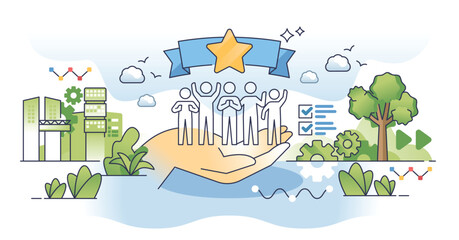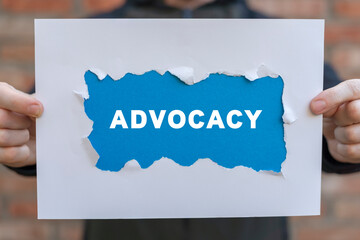Welcome learners!
Today, we will explore the crucial role of Advocacy and Support in fostering positive change in our communities. We’ll delve into how advocacy promotes social justice, helps us understand the needs of marginalized groups, and the strategies for effective support.

Advocacy and Support are fundamental to creating positive change. Advocacy involves promoting justice, equality, and human rights, while support empowers individuals and groups to overcome challenges and achieve their goals. Effective advocacy and support require a deep understanding of the needs and experiences of marginalized and vulnerable populations.
Through advocacy and support, we can amplify voices, challenge systems of oppression, and facilitate access to resources and services. Working together, we can build a more just and compassionate society that values diversity and promotes inclusivity.
“Advocacy is not about being a voice for the voiceless, but about amplifying the voices that are often silenced.” – Unknown
Principles and Practices of Advocacy and Support
Principles:
- Empowerment: Empowering individuals and groups to take control of their lives and decisions.
- Social Justice: Promoting justice, equality, and human rights.
- Solidarity: Standing in unity with marginalized and vulnerable populations.
- Cultural Competence: Understanding and respecting diverse cultures and experiences.
- Trauma-Informed: Recognizing the impact of trauma and providing safe and supportive environments.

Practices:
- Active Listening: Listening attentively to understand needs and concerns.
- Allyship: Supporting and amplifying the voices of marginalized groups.
- Capacity Building: Developing skills and resources for self-advocacy.
- Community Engagement: Building relationships and partnerships with community members.
- Policy Advocacy: Influencing policies and laws to promote social change.
- Supportive Communication: Using inclusive and non-judgmental language.
- Emotional Support: Providing emotional validation and support.
- Resource Navigation: Connecting individuals with resources and services.
- Leadership Development: Empowering individuals to become leaders and advocates.
- Continuous Learning: Staying updated on best practices and emerging issues.
These principles and practices guide the work of advocates and supporters, ensuring that their efforts are effective, respectful, and empowering.
“Support is not about fixing someone’s problems, but about being present in their struggles.” – Unknown
Watch this video for more information:
https://youtu.be/eX_H6qnfi2s?list=PLCHC5Qf6k9h0bwccT29txRfzsygecxqrS
Types of Advocacy
- Individual Advocacy: Supporting and empowering individuals to express their needs and rights.
- Group Advocacy: Collaborating with groups to promote collective interests and needs.
- Community Advocacy: Working with communities to address social, economic, and political issues.
- Policy Advocacy: Influencing laws, policies, and regulations to create systemic change.
- Legal Advocacy: Providing legal support and representation to individuals or groups.
- Political Advocacy: Influencing political decisions and processes to advance social justice.
- Public Advocacy: Raising public awareness and support for social causes through campaigns and media.
- Corporate Advocacy: Promoting social responsibility and ethical practices within businesses.
- International Advocacy: Addressing global issues and promoting human rights worldwide.

Real-Time Example of Advocacy and Support
The COVID-19 pandemic highlighted the importance of advocacy and support for marginalized communities. Healthcare workers and advocacy groups fought for access to vaccines, personal protective equipment, and medical care for low-income families, racial and ethnic minorities, and indigenous populations. These communities were disproportionately affected by the pandemic due to systemic inequalities. Through advocacy efforts, they successfully pushed for policy changes, increased funding, and community-based initiatives to address these disparities.
Question for Discussion: How can advocacy and support efforts be sustained and amplified to address the long-term impacts of the pandemic on marginalized communities?

Key Points to Remember
- Identify the needs and concerns of the individual or group.
- Listen actively and empathetically to their experiences.
- Empower them to express their own needs and rights.
- Provide resources and support to address their concerns.
- Amplify their voices through advocacy and activism.
- Challenge systems of oppression and discrimination.
“Advocacy is not a hobby, it’s a responsibility.” – Unknown
In conclusion, advocacy and support are powerful tools for creating positive change in our communities. By understanding the needs and concerns of marginalized groups and empowering them to express their own needs and rights, we can build a more just and equitable society. Now, let’s move on to the next topic, “Cultural Sensitivity,” to explore how we can work together to create a lasting impact!
Watch this video for more information:
Watch Video



